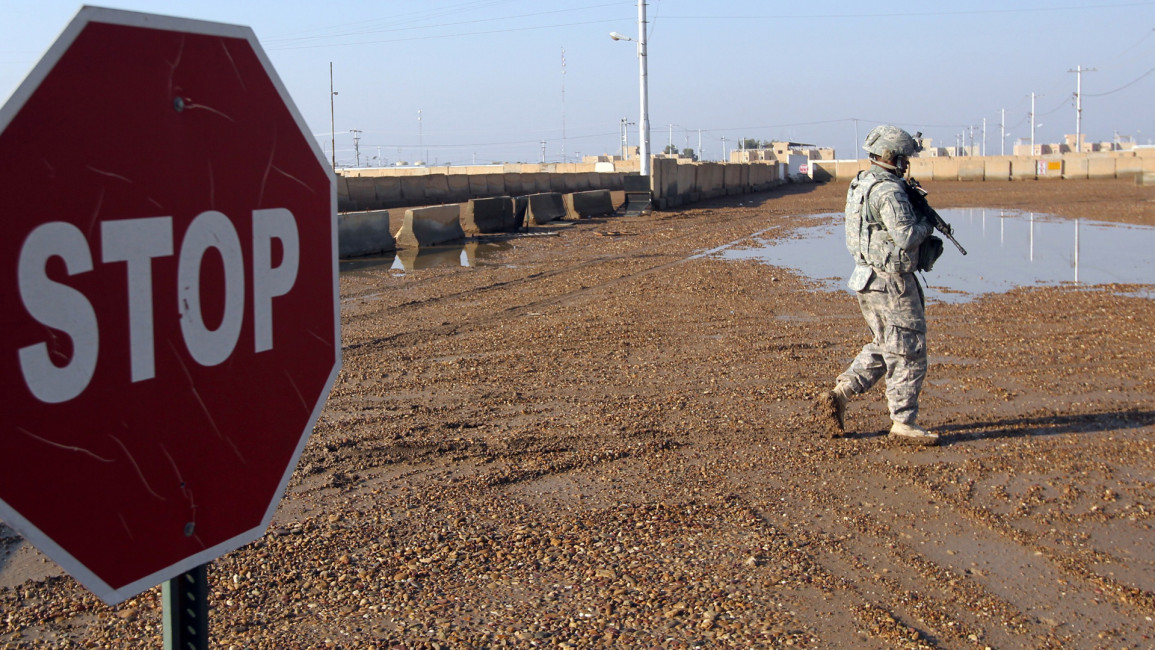
US troops and weapons will not solve Iraq's chaos
The US army's chief of staff, Ray Odierno, last week told CBS News that even sending as many as 150,000 troops to Iraq to crush the Islamic State would end in futility unless there was long-term co-operation from the Iraqi government.
"We went in and fixed it once... It took us a while - it took us longer than we wanted it to - but we fixed it. The security was good, the economy was growing," he said.
"We handed it to them, and here we are three, four years later, and IS has been in control, has really had an impact on the security of the Iraqi people, and is now threatening the region in a much greater way.
"I could put 150,000 soldiers on the ground and defeat IS? Yes. But then what? A year later it would be right back to where we are today."
Odinero knows the situation he's talking about. He spent six years in the region. From 2008 to 2010 he was head of all foreign troops, and he is among a handful of US generals ever to command at the division, corps, and army level during the same conflict.
A powerless superpower
The implicit conclusion may be that the US is powerless to solve the problem by itself without co-operation from the Arab, neighbouring countries, or maybe Odierno was reacting to President Barack Obama's decision to send an additional 450 troops to train Sunnis, in an effort to retake IS-controlled Ramadi.
With 450 troops, the total number of US personnel in Iraq will reach 3,550 - about the size of a brigade.
Odinero's words were an implicit warning that the US may be in the clutches of mission-creep, as with the case in Vietnam, despite insisting that it wasn't.
The real problem, according to Odierno, is not simply defeating IS, but rather "forging an integrated Iraq army and overcoming deep-rooted ethnic and religious conflict between Sunni, Shia and Kurdish fighters".
This lack of a cohesive political and military structure that incorporates the interests of all groups to create a stable environment is what keeps the country so vulnerable to chaos, or the breakup of the country into three states along ethnic and sectarian lines.
| Odinero's words were an implicit warning that the US may be in the clutches of mission-creep, despite insisting that it wasn't. |
The Senate tried to do just that on Tuesday, 16 June, but failed to enact into law an amendment that would have effectively treated the Kurdistan Regional Government as an independent country, and given the Obama administration new authority to directly arm Iraq's Kurds, even though the White House doesn't want that power.
For now, there's a Kurdish army in the north and a Shia army in the south.
Both Odierno and the departing chairman of the US joint chiefs of staff, Martin Dempsey, believe that the Sunni Awakening Councils created by during the US "surge" of 2007 to 2010 can be replicated and improved.
The Awakening Councils were formed by the Sunni tribes from Anbar - mainly former Iraqi officers - which the former Iraqi prime mister Nouri al-Maliki reneged on paying after the last US combat troops left Iraq in 2011.
One must note that in both houses of the US Congress, the breakup of Iraq - at least in so far as in creating an independent Kurdistan - enjoys overwhelming support.
The debate in Washington about the chaos in Iraq is even more chaotic than the administration's disoriented strategy. Hordes of ill-informed pundits and former military and intelligence personnel appear on television calling for things that will only plunge the US into endless war in Iraq, and plunge Iraq further into mayhem.
Less war-war, more jaw-jaw
Sensible minds must step up to offer a way out of this horribly vicious circle of violence which began with the invasion 12 years ago.
The only way to break out of violence is to end the promotion of violence. Certainly no US troops should be sent back to Iraq, but equally the promotion of war through proxies by sending them more arms must end.
Iraq is bursting at the seams with arms and militias, millions are dead or forced to flee their homes, healthcare and education systems are destroyed.
Furthermore, this endless supply of US weapons, which the Iraqi government is using to attack other Iraqis, is only producing more sectarian conflict that is degenerating into a region-wide war. The battle for hearts and minds was lost a long time ago.
Those who are always contemplating more war in Iraq - and the region at large - must understand that sending fighters, bombers, drones (and eventually troops) will only create another generation of Iraqis (and Arabs and Muslims) who see the US as the enemy.
Instead of more war and flooding the region with weapons, the US must lean on its allies to refrain from fighting proxy wars and end the supply of weapons and militants that fuel civil strife.
It must genuinely convince the Iraqi government that only through the pursuit of an authentic national reconciliation agenda, which reaches out equally to all of Iraq's diverse ethnic and religious communities, could finally have legitimate sovereignty.
To Iraq's Kurds, the US must make it plainly clear that while it understands its quest for independence, it must be done in harmony with the rest of Iraq. Sending tanks and heavy weapons to the Kurd's Peshmerga fighters will only ensure a hard landing for an independent Kurdistan.


![President Pezeshkian has denounced Israel's attacks on Lebanon [Getty]](/sites/default/files/styles/image_684x385/public/2173482924.jpeg?h=a5f2f23a&itok=q3evVtko)



 Follow the Middle East's top stories in English at The New Arab on Google News
Follow the Middle East's top stories in English at The New Arab on Google News


